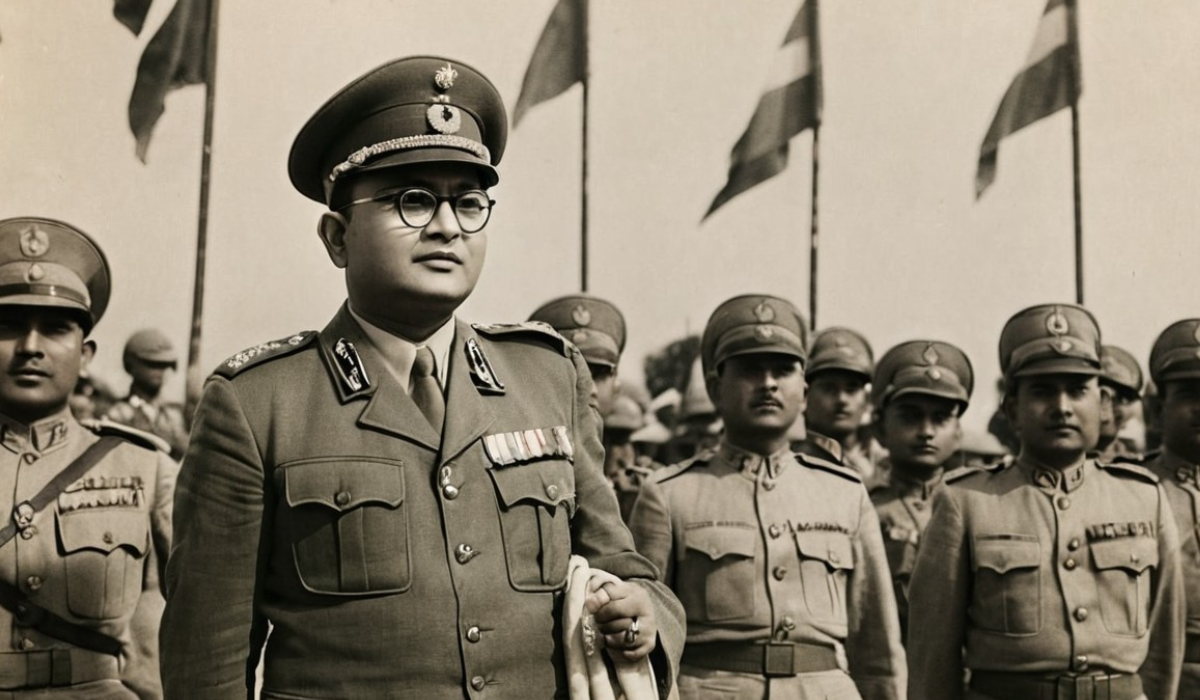Netaji Subhash Chandra Bose, an enduring symbol of courage, leadership, and patriotism, played a pivotal role in India’s struggle for independence. As we commemorate his birth anniversary on January 23, 2025, let us revisit 13 key aspects of his life and contributions that continue to inspire millions across the nation.
1. Early Life: A Legacy of Strong Values
Born on January 23, 1897, into a prominent Bengali family, Subhash Chandra Bose was the ninth of fourteen children. His father, Janakinath Bose, a renowned lawyer, and his mother, Prabhavati Devi, nurtured in him a deep sense of patriotism and moral strength.
2. A Scholarly Mind with Leadership Qualities
Bose excelled academically, consistently ranking among the top students. He graduated with a degree in Philosophy from the University of Calcutta in 1918, showcasing his intellectual brilliance and leadership potential from an early age.
3. Patriotism Over Prestige
In 1919, Bose secured the fourth rank in the Indian Civil Services (ICS) exam held in England. However, he renounced the prestigious position, refusing to serve under British rule, thus committing himself to the cause of India’s freedom.
4. The ‘Prince Among Patriots’
Bose earned the title “Prince among Patriots” for his unwavering dedication to India’s independence. Mahatma Gandhi, despite ideological differences, referred to him as the “Patriot of Patriots,” acknowledging his unparalleled commitment to the cause.
5. Spirituality as the Foundation of Nationalism
Deeply influenced by Swami Vivekananda and Sri Ramakrishna Paramahansa, Bose believed that spirituality and nationalism were interconnected. He envisioned India’s freedom as both a spiritual awakening and a political mission.
6. Leadership in the Indian National Congress
Subhash Chandra Bose served as President of the Indian National Congress in 1938 and 1939. His radical views on achieving independence, however, led to conflicts with Mahatma Gandhi. This eventually prompted him to form the Forward Bloc, advocating for more revolutionary methods.
7. Revolutionary Voice Through Azad Hind Radio
In Germany, Bose established Azad Hind Radio to inspire Indians and propagate his revolutionary ideas. Iconic slogans like “Jai Hind” and “Dilli Chalo,” coined by him, remain etched in India’s collective memory as symbols of freedom and unity.
8. A Secret Marriage and Family
In 1937, Bose secretly married Emilie Schenkl, an Austrian woman. They had a daughter, Anita Bose Pfaff, who later became an economist. Despite the distance, Emilie supported Bose’s mission wholeheartedly.
9. Renaming Andaman and Nicobar Islands
During his leadership of the Azad Hind Government, Bose renamed the Andaman and Nicobar Islands as “Shaheed” and “Swaraj” in 1943, asserting India’s sovereignty and honoring the sacrifices of freedom fighters.
10. Formation of the Azad Hind Government
On October 21, 1943, Bose proclaimed the establishment of the Provisional Government of Free India, also known as Azad Hind Sarkar, in Singapore. This historic move rallied Indians globally to unite for the fight against British colonial rule.
11. The Indian National Army: A Call to Arms
Netaji formed and led the Indian National Army (INA), or Azad Hind Fauj, to liberate India through armed struggle. Supported by Japan during World War II, the INA launched significant military campaigns against British forces, becoming a critical force in the independence movement.
12. Author of ‘The Indian Struggle’
Bose’s book, The Indian Struggle, outlined his vision for India’s freedom and his political philosophy. Banned by the British authorities, it remains a seminal work that sheds light on his revolutionary ideas.
13. The Mystery of His Disappearance
Subhash Chandra Bose’s reported death in a plane crash in Taiwan on August 18, 1945, remains shrouded in mystery. Speculations about his survival and life in secrecy have continued to captivate public imagination, adding intrigue to his remarkable legacy.
Conclusion: Remembering an Icon of Courage and Unity
Netaji Subhash Chandra Bose’s extraordinary life was defined by his bravery, visionary leadership, and unwavering dedication to India’s independence. From forming the Indian National Army to his call for sacrifice with “Give me blood, and I will give you freedom,” Bose’s contributions continue to inspire generations. On his Jayanti, let us honor his legacy and reflect on the spirit of unity, selflessness, and patriotism that he instilled in India’s freedom movement.
Also Read: Push-Pull Technology in Indian Railways: Transforming the Future of Train Travel


[…] Also Read : Subhash Chandra Bose Jayanti 2025: Celebrating the Legacy of a Patriot […]